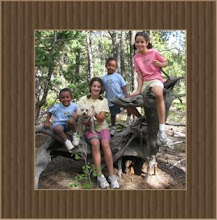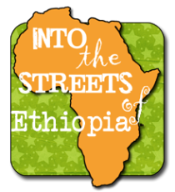Different agencies have different policies on meeting birth families.Some have you wait until after the US Embassy appointment, others after court only, others still, after you have picked up your child for the final time and will keep him or her with you indefinitely. Some don't even want you to meet them at all. You will have to abide by your agencies preferences. Ethiopia's official stance, as far as I can gather, is that it is ok to meet birth relative AFTER you have taken custody of the child and that there be NO money exchanged in any way.Of course no matter what your situation, it is really up to the birth family if they want to meet you. You can request or not request, but if they want to or do not want to meet, then that is what will happen. (per your agency rules).
Meeting a family member can be beneficial for your history records for your child. They will inevitably want to know something about their personal history. We all want to give our children as much as we can and with Ethiopia, that is often very very little.
In case you have the opportunity to meet a birth relative of your child you may like to have some questions ready for the occasion.I would suggest taking these with you at every outing. We asked to meet a birth relative. We assumed we would be given the yes or no and if yes a date and time. We did not expect that that person would be waiting for us when we picked up our children! I did not have my questions and was so flustered with everything new and different, and jet lag that I did not have my normal ability to think on the spot. Much of what I wanted to know is lost forever, if it was even knowable. Take your questions with you just in case! Identify your critical questions ahead of time in case your time is short or emotionally draining.
Here are mine:
Things I want to know about my sons:
(Some of this you may know from your referral. Of course you can verify what you have been told)
you can ask about translations of words, dates, meanings, etc. A lot of this can also be done on line after you are home. Get your criticals asked before you run out of emotional steam on both ends.
Name:
Meaning
Who gave it to him
Situation
any thing significant about his birth or time of his birth
date of birth at best guess
place of birth
what was the child like as an infant
what was the child like as an infant
tribe of child's ancectors
tribal markings or traditions still kept
religion of family
Family information and names, anything known
Region he is from, city name where born
what was his or her home like
what was his or her home like
Family History social and medical
Did he live with family or only in the orphanage
siblings?
what was his relationship with birth mother/father like
how did mother and father meet
married when and where, what was that like
names of as many family members as possible, parents, grandparents, siblings, uncles
names of as many family members as possible, parents, grandparents, siblings, uncles
are they still married/separated/divorced/death of one or both parent
does the child know and have an idea about this situation
cause of death
cause of death
why adoption
hopes for the child to be shared with child
happy or favorite stories to be shared with the child about family or self
hopes for the child to be shared with child
happy or favorite stories to be shared with the child about family or self
What age did he come to the orphanage
Under what circumstances did he arrive
What was his physical condition when he came
How long did it take him to adjust to the new situation, any new situation, new teachers, etc.
Medical history of family
Birth details
Infancy, any information,
Early childhood, any information
home life details
parents work
Social history
What does he like to eat
To do
Who is his friend
Who is his favorite nanny/teacher
What is he good at
Is there any textures of food or clothing that bother him,
Sounds or smells?
Does he like soft or firm touch
Does he like to be held
Does he tend to go full force ahead or is he more cautious
What is his sleep routine/habits/schedule
What does he do to show displeasure or that he is upset
Does he come to an adult when hurt or upset
Does he tell stories, tell about experiences, ideas, etc
How does he relate to other children his age
To younger children
To older children
To adults
To strangers
To animals
What is it that seems to be the thing that upsets him most
Does he share his feelings
Is he happy or sullen or contemplative
Does he play alone or with others mostly
how does he play with others
What is his educational status
Can he read
Do math
Write
Etc.
How much does he know in English
What language does he speak mostly
Is he obedient
Is he compliant
Can he stand up for himself
is he willful or stubborn
Schedule?
Talents?
Names of friends and caretakers











































Why is the information lost forever? Why don't you contact them and ask your questions?
ReplyDelete1. Not everyone has a surviving relative to contact. 2. Not all relatives want to continue contact. 3. Not all relatives are able to be contacted. Poverty moves people around a lot. 4. it is an extensive process to locate family members who you have no contact for. 5. Not everyone gets to meet a relative and even if you do you are not guaranteed contact info. 6. some agencies prohibit contacting relatives and even discourage you getting contact info if you are able to meet any family members.
ReplyDeleteContacting a family member is not a given in most situation. If you have this opportunity you are fortunate.
I know all that but you said you had met someone, so I was asking why you haven't reached out to that person again. People find abandoned childrens families after years with no information at all to go on.
ReplyDeleteOh, we have tried. And will continue to try to make contact. There is just nothing coming back. Maybe some day. I hope and pray. But, can not expect.
ReplyDeleteJill